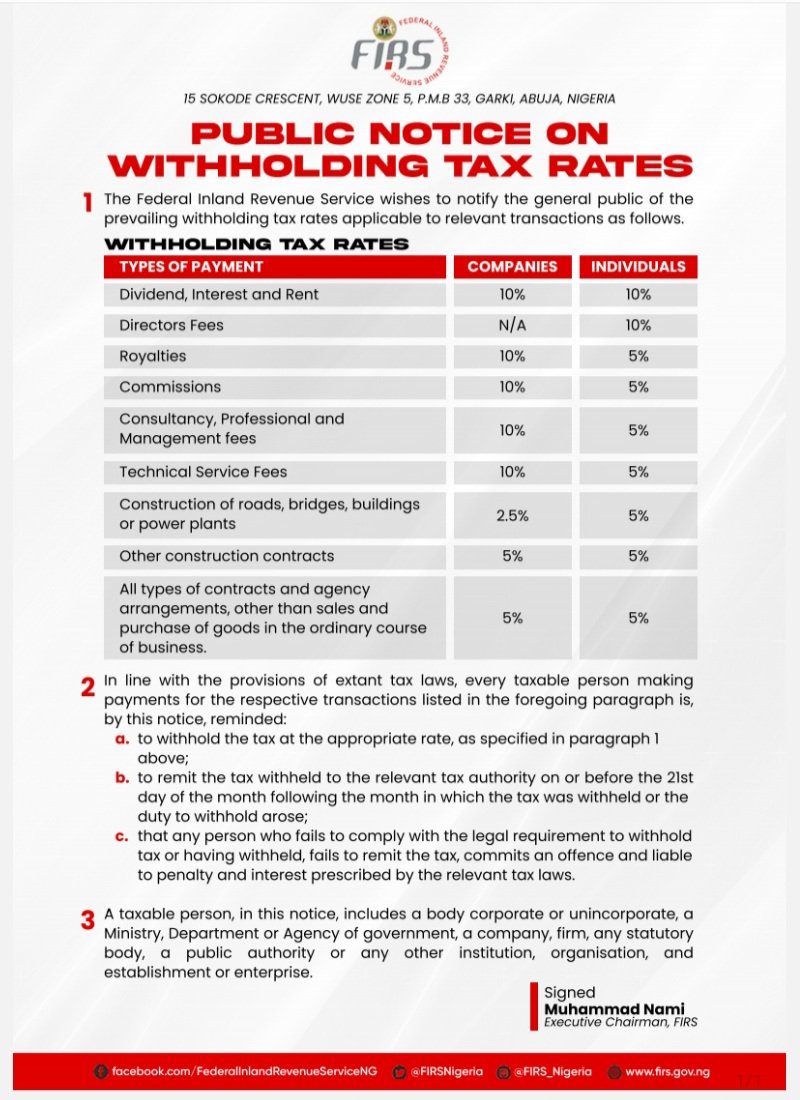
The Federal Inland Revenue Service (FIRS) has announced significant increase in collectable tax revenue from the non-oil sector of the economy in spite of the economic devastation caused by the coronavirus pandemic across the world.
Executive Chairman of the FIRS, Muhammad Nami, who made this known today, September 17 when he led members of the Board of the Service on a visit to the Minister of Finance and National Planning, Mrs. Zainab Ahmed, attributed the increase in the non-oil sector receipt to reform measures introduced by the Board and Management as well as the renewed vigour in the Service workforce.
According to Nami, non-oil tax receipts have consistently contributed 75-90 per cent of total tax revenue in recent months.
He said that out of N490 billion collected by the Service in July only N52 billion was from the oil sector with the rest coming in through non-oil receipts.
Nami commended the minister for her support to the FIRS and its Board since their inauguration earlier in the year and solicited closer working relationship between the Service and her ministry.
The minister, who acknowledged Nami’s disclosure, commended the Management and Board for working to limit the disruptive impact of COVID-19 on government revenue through their proactive reforms.
She said that this had made it possible for the three tiers of government to receive their monthly statutory allocations from the Federation Accounts.
The minister observed that Value Added Tax (VAT) and Stamp Duties receipts have boosted government revenue despite the pandemic, even as she pledged to continue to support the Management and Board of the FIRS.
She tasked the Service to work harder towards diversifying government revenue sources further away from dependence on oil.








